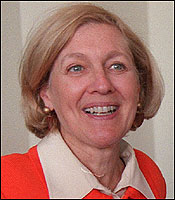 The U.S. entered its dark period in Spring 1965. Confronted with the impending collapse of the South Vietnamese government at the hands of North Vietnam/Vietcong forces, the U.S. under President Johnson responded by sending American combat troops to carry on the fight. From that point on, life turned bleak in America. Events and the media drove Johnson from office three years later. Johnson’s successor Nixon was also a failed president; he got us out of Vietnam, but committed the Watergate-related crimes.
The U.S. entered its dark period in Spring 1965. Confronted with the impending collapse of the South Vietnamese government at the hands of North Vietnam/Vietcong forces, the U.S. under President Johnson responded by sending American combat troops to carry on the fight. From that point on, life turned bleak in America. Events and the media drove Johnson from office three years later. Johnson’s successor Nixon was also a failed president; he got us out of Vietnam, but committed the Watergate-related crimes.Both Johnson and Nixon wrongly played economic policy for short-term gain. Their economic decisions generated inflation, recession, or stagflation—a combination of both—for most every year from 1967 to 1983. In foreign affairs, we were driven from Vietnam in 1973, and South Vietnam and neutralist Cambodia collapsed in 1975. By mid-1979, President Carter was indicating a “national malaise,” not his administration, was responsible for America’s continuing economic and foreign problems. In late 1979, Iranians seized the American embassy in Tehran, and the subsequent hostage crisis, including Carter’s aborted effort to rescue the hostages, dominated the remaining days of his failed administration. It took Ronald Reagan in the early 1980s to pull us finally out of our national funk.
Gerald Ford was an accidental president in the midst of this bleak period. He was appointed Vice President in late 1973, after evidence of Spiro Agnew’s corruption forced the elected Vice President to resign. Nixon knew Ford, popular in Congress, would receive easy confirmation. Nixon also thought Ford’s well-known limitations, including his total lack of charisma, might cause Congress to hesitate before removing Nixon from office.
In his two and a half years as president, Ford brought the nation badly needed decency and calmness, symbolized by the good feelings surrounding 1976's Bicentennial celebration of American independance. But Ford did little to solve America’s economic and foreign problems—to end our real national nightmare. The November 1974 mid-term elections, three months after Ford took over, were a Republican disaster. Ford, though personally honest, made it worse for Republicans by tying himself to Watergate when he granted Nixon an unconditional pardon from Watergate crimes, an effort to dispose of Watergate that blew up in Ford's hands.
Ford committed another major blunder when in 1976, he denied to a national audience in America's first presidential debates since 1960 that Poland and Eastern Europe were under Soviet domination. His mistakes helped make Ford the third president in a row forced to leave office before reaching his constitutional limit.





































